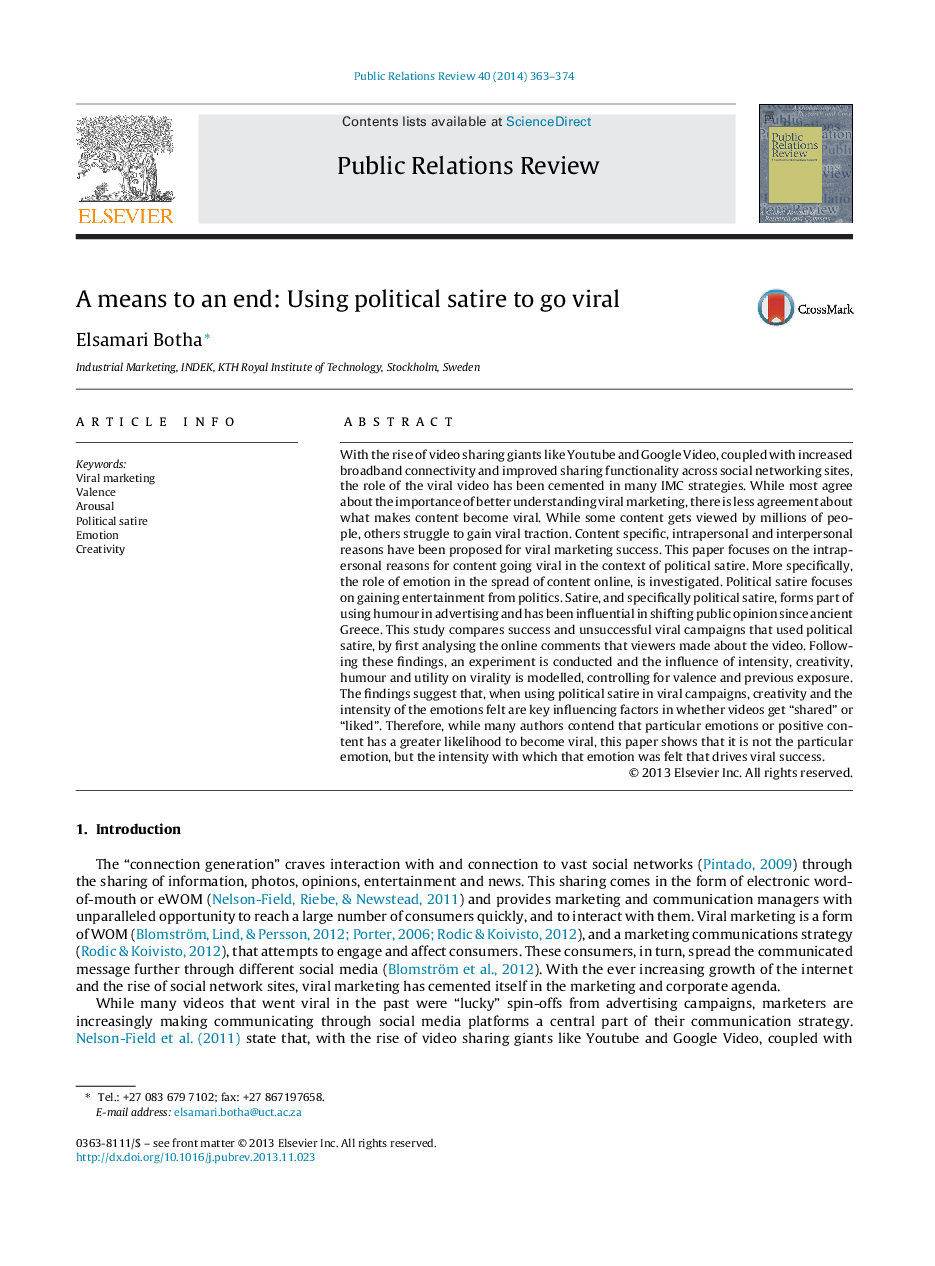| کد مقاله | کد نشریه | سال انتشار | مقاله انگلیسی | نسخه تمام متن |
|---|---|---|---|---|
| 139182 | 162485 | 2014 | 12 صفحه PDF | دانلود رایگان |
• This paper investigates the efficacy of using political satire to in viral campaigns.
• Specifically, the role of emotion, emotional arousal and creativity in the spread of content online is investigated.
• A two-stage design, first with content analysis and then an experiment, is used.
• The creativity of the ad and the intensity of the felt emotion, are key factors in whether videos get shared or liked.
• A distinction can also be made between “sharing” and “liking” in research on viral content.
With the rise of video sharing giants like Youtube and Google Video, coupled with increased broadband connectivity and improved sharing functionality across social networking sites, the role of the viral video has been cemented in many IMC strategies. While most agree about the importance of better understanding viral marketing, there is less agreement about what makes content become viral. While some content gets viewed by millions of people, others struggle to gain viral traction. Content specific, intrapersonal and interpersonal reasons have been proposed for viral marketing success. This paper focuses on the intrapersonal reasons for content going viral in the context of political satire. More specifically, the role of emotion in the spread of content online, is investigated. Political satire focuses on gaining entertainment from politics. Satire, and specifically political satire, forms part of using humour in advertising and has been influential in shifting public opinion since ancient Greece. This study compares success and unsuccessful viral campaigns that used political satire, by first analysing the online comments that viewers made about the video. Following these findings, an experiment is conducted and the influence of intensity, creativity, humour and utility on virality is modelled, controlling for valence and previous exposure. The findings suggest that, when using political satire in viral campaigns, creativity and the intensity of the emotions felt are key influencing factors in whether videos get “shared” or “liked”. Therefore, while many authors contend that particular emotions or positive content has a greater likelihood to become viral, this paper shows that it is not the particular emotion, but the intensity with which that emotion was felt that drives viral success.
Journal: Public Relations Review - Volume 40, Issue 2, June 2014, Pages 363–374
